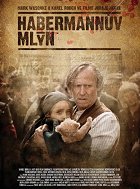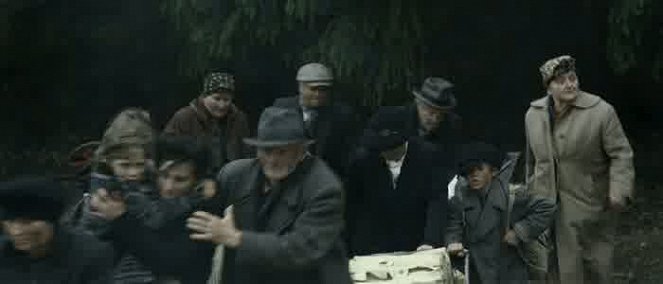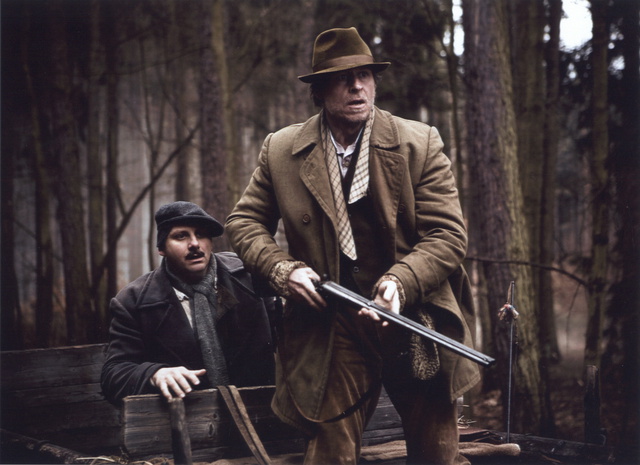Directed by:
Juraj HerzCinematography:
Alexander ŠurkalaComposer:
Elia CmiralCast:
Mark Waschke, Karel Roden, Ben Becker, Hannah Herzsprung, Radek Holub, Wilson Gonzalez Ochsenknecht, Zuzana Kronerová, Jan Hrušínský, Franziska Weisz (more)VOD (1)
Plots(1)
A war drama takes place in a small village in the Sudetenland between 1938 and 1945. A time that made victims murderers and murderers victims for a change. Staying apart and keeping a cool head was the hardest thing to do. (official distributor synopsis)
Videos (1)
Reviews (8)
People are swine, and it doesn't really matter what their nationality is. The film captures a dark period in human history and also a dark period in Czech history. Yes, Germans were monsters during the war, but after the war, monsters also emerged from other places. Yes, war may be to blame, but perhaps it is also human nature and the attempt to define justice as an eye for an eye when no one is watching. The finale of the film is epically cruel.
()
It’s good that we are making films that deal with the darkest period of this country’s modern history, and we can be even more pleased that they are as good as Habermann's Mill – excellent filmmaking with superb actors and a perfectly flowing story. In my opinion, as someone who can only imagine the horrors of the Second World War through documentaries, the atmosphere of that dark era is flawless and, overall, the slightly more "intimate" Czech production is the cornerstone of its success. The film's only, but fatal weakness is that it fails to psychologically grip and dramatically escalate its key moments, so that the otherwise honest production momentarily shifts from the mode of cold-blooded, Oscar-hungry demonstration of (in)humanity to a rawer visual one... Nevertheless, well deserved 4*.
()
Getting to know the characters and the period atmosphere in the first third promises a great drama of Western European quality with Oscar ambitions. This potential, however, somehow fades away during the rest of the film. The writing of the list was supposed to be the key scene of the film that would turn the remaining running time into an unforgettable dramatic inferno. It turned out to be only a partial success. Nevertheless, the film remains very decent – the actors, costumes, set designs and camerawork are all flawless. I thought hard about giving it four stars.
()
In the last ten years, World War II has been reflected in the story of the RAF airmen in Dark Blue World, in the fate of the Hanula of Zelary, it was there in Bonds of Blood and was featured in I Served the King of England, Tobruk, and Protector. Now, Herz's Habermann's Mill deals specifically with the question of the 1945 expulsion of the Germans, toward which the narrative arc from 1937 onwards follows a direct line of the changing behavior of a multi-ethnic community in extreme times. Herz does an amazing job in every possible respect and presents a film that has been a necessity for Czech cinema for many years. The preponderance of German actors is one of the many strengths on which the basic impact of the horror of the events at Habermann's Mill was built. In particular, Mark Waschke in the lead role embodies the compact, complex character excellently, lending a hand across the decades to, for example, Schlapcke's Boris Rösner of the Albrechtice smelters. The same goes for the riveting performance by Hannah Herzsprung and several others. With the Czechs, it is somewhat difficult to avoid the established pigeonholes, especially with Roden and Hrušínský; however, there was a certain breakthrough when it came to Kaiser and Dulava. It is definitely worth mentioning that Veronika Gajerová, whose performance ideally meets the requirements of the template given to her, as she was given a film role instead of television for the first time since 1989. It would probably now be possible to consider whether Herz is, after all, subconsciously presenting a defense of the German side against the Czech side, but in this case, such an idea would be blasphemous. The story flows and adapts to the time, which is cut off in fairly large chunks of time to allow for the point to be focused on. And at the same time, it is possible to find time for visual references to Coach to Vienna... Looking at it from multiple angles, the only real downside to the film is that the marketing focused exclusively on Karel Roden, who is only a prominent supporting player in the plot, thus stealing space from the main stars of the drama.
()
To tell you the truth, Habermann's Mill was a very pleasant surprise. The craftsmanship is very professional, Roden is charismatic and the emotions are fairly strong. Unfortunately, it has a couple of the typical problems of modern Czech cinema, like some toe-curling dialogues and the terrible post-synchronisation… but the overall impression left by Herz’s film is very positive.
()



Ads